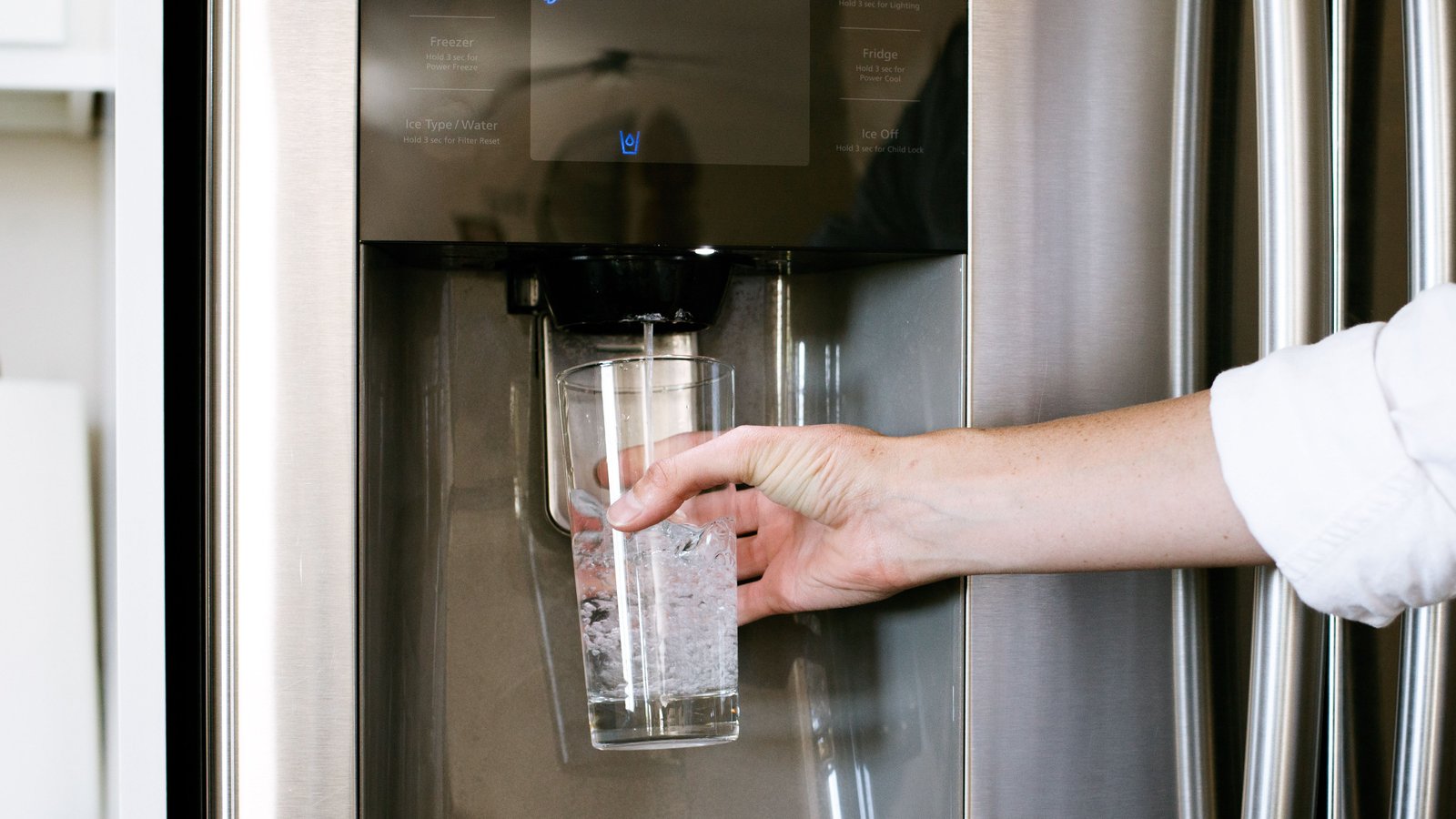It’s possible that the water coming from your taps is not as pristine as you might imagine. One of the persistent workers inside your kitchen is the refrigerator water filter, despite the fact that we almost never care about it. It cleanses tap water right down to the smallest pollutants, guaranteeing that each glass of water you use is clear and devoid of toxic particles. Water quality can be affected at any stage, from the source to the pipelines that transport it to your house. Consequently, ordinary tap water can contain toxins such as bleach, arsenic, pesticides, and others, which impact not only the smell and taste of your food but also the general well-being of your family. Several modern refrigerators keep track of the filter’s service life and alert you when it’s time to replace it by flashing a light or using an alternative indicator. When that occurs, there are a number of internet sources for certified Refrigerator Water Filters & Replacements that make taking the appropriate action both crucial and convenient.
- The Risks Of Not Replacing Your Refrigerator Water Filter
Maintaining a clean filter is the main benefit of effectively cleaning out dangerous substances like mercury, asbestos, lead, and hazardous pathogens from your drinking water. Elevated mercury concentrations have been linked to harming the kidneys, brain, and developing embryos in pregnant females. Severe chronic conditions like mesothelioma and lung diseases are among the health risks linked to asbestos. Older lead pipes often allow leading to leach into water supplies, which can harm both infants’ and adults’ well-being and trigger neurological, cognitive, and other issues. Air pollution, industrial waste, and corroding pipelines all contribute to the intrusion of asbestos into our water supplies.
The ice maker can become clogged with deposits and scale if the water filter in your refrigerator is not replaced, which can pose a significant threat to the appliance. This accumulation favors deceleration of the mechanism, causing a decrease in flow, which worsens the taste of your water. Your water may taste rusty or generally unpleasant if an outdated filter is not properly removing foul-tasting particles from it.
- Refrigerator Water Filter Shelf Life
Refrigerator water filters, fortunately, have an unlimited shelf life under dry conditions, so you don’t have to worry about that. A plastic cartridge containing activated carbon serves as the basic component of water filters. Until it becomes wet, this substance, which filters out impurities from water, is still usable. But as soon as you apply your filters, the rules get altered.
- Indications That The Filter Needs To Be Replaced
You can watch out for a few warning indicators that it’s time to replace your refrigerator’s filtration system when you can’t recall the last time it was done so. The filter may require changing if you detect any of these typical indications that it is unclean:
- The primary indicator of whether to replace your refrigerator water filter might be your own senses. Consider changing the filter whenever you notice your water tasting unusual to resume enjoying the refreshing water.
- In contrast to soft water, which over time clogs your filter with the very substances it is supposed to remove, hard water renders your filter susceptible to mineral deposits. Both can lead to a reduced water pressure n your dispenser.
- The handy warning lights turn on when it’s time to replace your water filter. This is useful because not everyone consumes the same quantity of refrigerator water each day.
- Ice quantity and quality are impacted when water filters go bad. Your icemaker would frequently run short of ice, or the ice might come out very hazy or have an unpleasant flavor and taste.
- How Frequently To Replace Your Water Filter?
The water filter should typically be replaced once every six months. But, that timespan may change depending on a few variables. The crucial component would be your locality’s water hardness. The second is how regularly you have been using the ice machine or dispenser. Use test kits to check for toxins if you’re unclear about the purity of your apartment’s water system. Compared to other states, some regions have higher lead content in their water pipes. As a result, in this kind of scenario, you would probably need to change the filter in your refrigerator more often. Your filter becomes more vulnerable to pollutant saturation after about six months. Even if your water appears to be clean and tastes good, dirt and debris can clog the filter, allowing more toxins to enter the system.
Regular upkeep is necessary for clean water. The majority of filters have a specified gallon capacity. This is the volume of water that your filter is expected to filter. When you’ve reached this limit, change the filter if you still want to enjoy your cool glasses of water.

